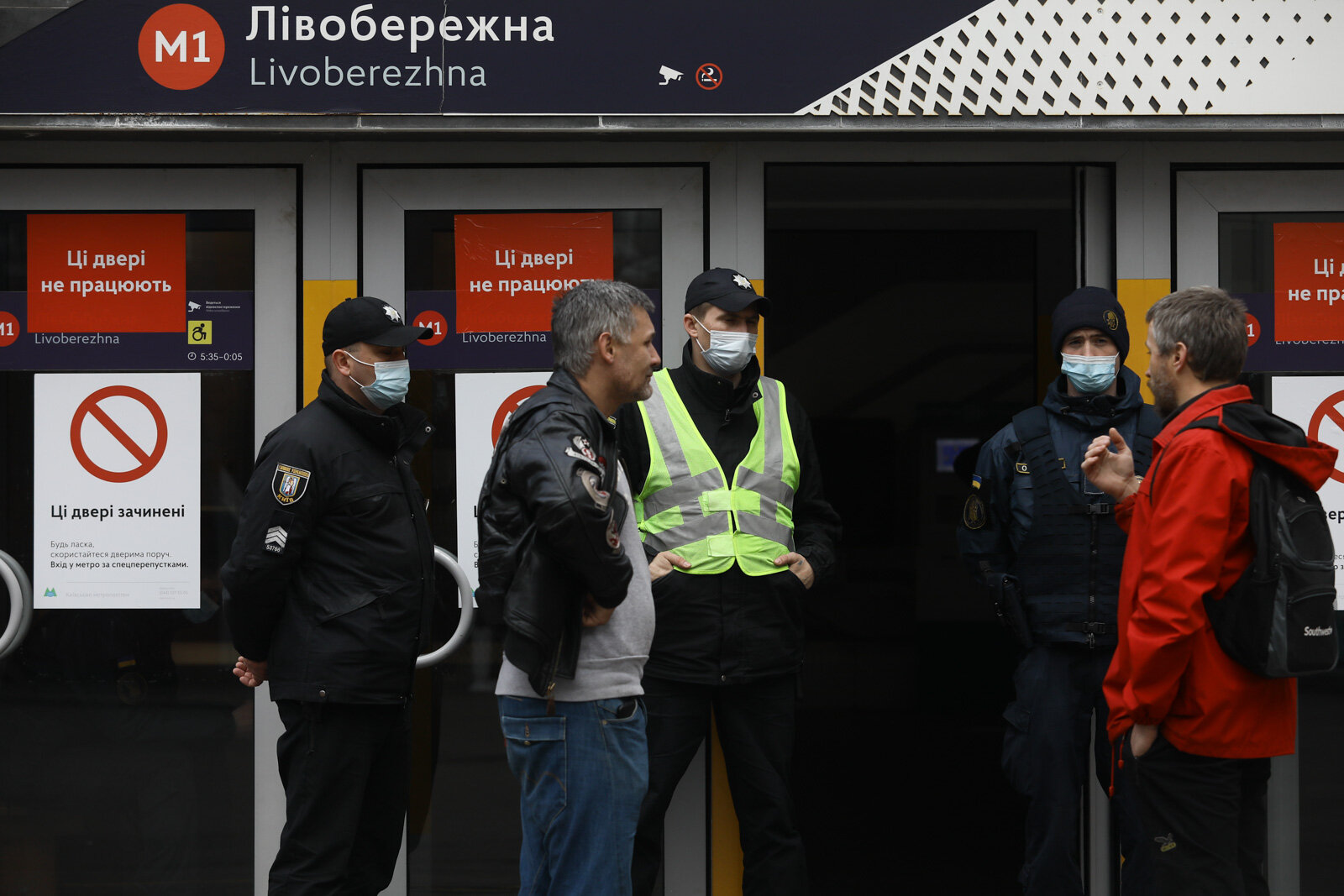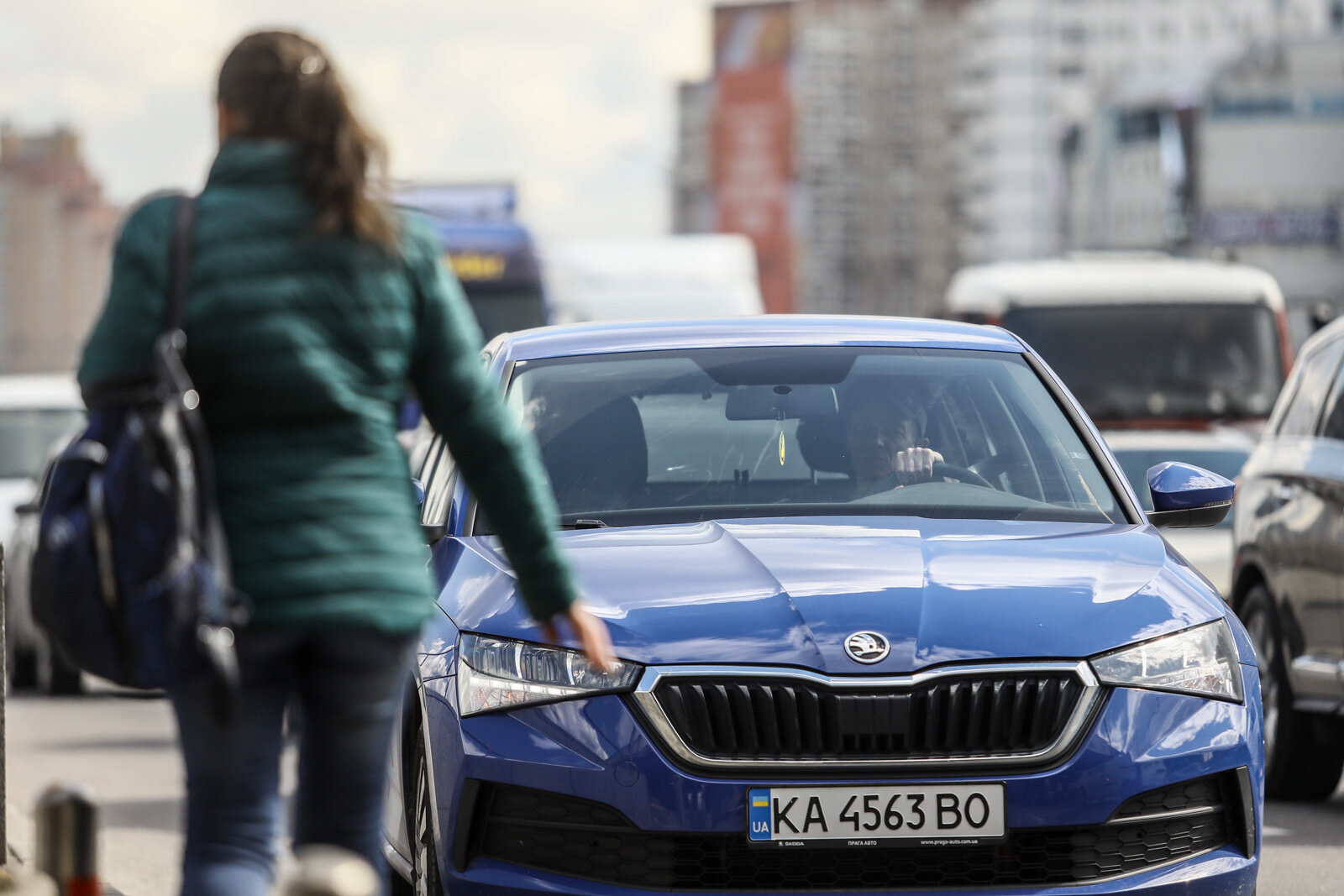As Kyiv restricted public transport to curb the spread of coronavirus, the city’s roads became paralyzed by heavy traffic. At 10 a.m., all four bridges leading to Kyiv’s right bank were practically motionless.
The transportation nightmare was caused by the intensification of lockdown measures. Starting from April 5, only employees of essential services who managed to get a special permit from the government could use public transport, including the metro.
Kyivans who didn’t receive a permit complained that of price gouging on taxi prices.
They tried catching taxis to work only to find threefold price increases “due to an unusually high demand”.
In the morning on April 5, a 10-kilometer ride with the Bolt taxi service cost around Hr 325. In the late afternoon, the price went down to Hr 135.
Some Uber rides around the city went as high as Hr 1,000.
“The end of the epoch of poverty – getting to work for 300+ hryvnias,” one user wrote on Facebook.
Some people took to public electric scooters, operated in Kyiv by Bolt and Kiwi.
Police officers patrolled metro entrances, letting in only those who had a permit and a valid ID.

Police officers patrol a metro station in Kyiv on April 5, 2021, letting in only critical infrastructure employees who have a permit and an ID. (Oleg Petrasiuk)
Many businesses received the permits over the weekend and weren’t able to distribute them to their workers before Monday. Hence, some essential workers were in a peculiar situation, having to go to work to pick up the permits but not being able to use public transport.
Some businesses complained about not hearing back from Kyiv City Council after applying for the permits.
Shortly after the government announced the new lockdown measure, advertisements of fake public transport permits flooded the internet.
Kyivans could purchase a fake permit card for Hr 100 on OLX, Amazon’s Ukrainian counterpart.
The Kyiv City Council contacted the police about the online scammers, stressing that “special tickets are issued free of charge to those organizations that ensure the livelihood of the country and the city – its medical workers, law enforcement officers, housing and communal services workers, supermarket and pharmacy workers, social workers and more”.
An 18-year-old young woman was arrested for selling fake special permits for Hr 200 at a bus stop on April 5.
According to the Kyiv City Prosecutor’s Office, she ordered the permits online and then posted an advertisement on Facebook.
Owners of non-essential businesses are also upset with the new measures. Some looked to buy the transportation permits for their workers online.
“Friends, where can I buy these discriminatory papers? I need 10+ tickets for employees because we need to get to work somehow. Taxis are too expensive for everyone. It won’t work out officially – we’re not a pharmacy or a restaurant. But we still work every day,” the head of Chernobyl Tour Yaroslav Yemelianenko wrote on Facebook.
Other entrepreneurs commented on his post, saying they are looking for permits as well.

A woman flags down a car, unable to use public transport because of quarantine restrictions, in Kyiv on April 5, 2021. According to new quarantine measures, public transport opens only for workers of critically important infrastructure. (Oleg Petrasiuk)
“Until there is a state of emergency, all these restrictions are legal stunts which lead to a complete decline of the country’s economy” Yemelianenko told the Kyiv Post.
“There are millions of unemployed people who cannot even afford food and medicine for themselves and their families. Still, it is better to get sick when the basic needs are met,” he added.
As of April 5, enterprises in the fields of energy, chemical industry, transport, banking and finance, telecommunications, food, healthcare and utilities can apply to get permits for their workers, as they are deemed critically important infrustructure.
The Kyiv City Council has already printed 500,000 permits, and 437,00 of them were handed out.
Public transport will remain shut for the general public until at least April 16.



